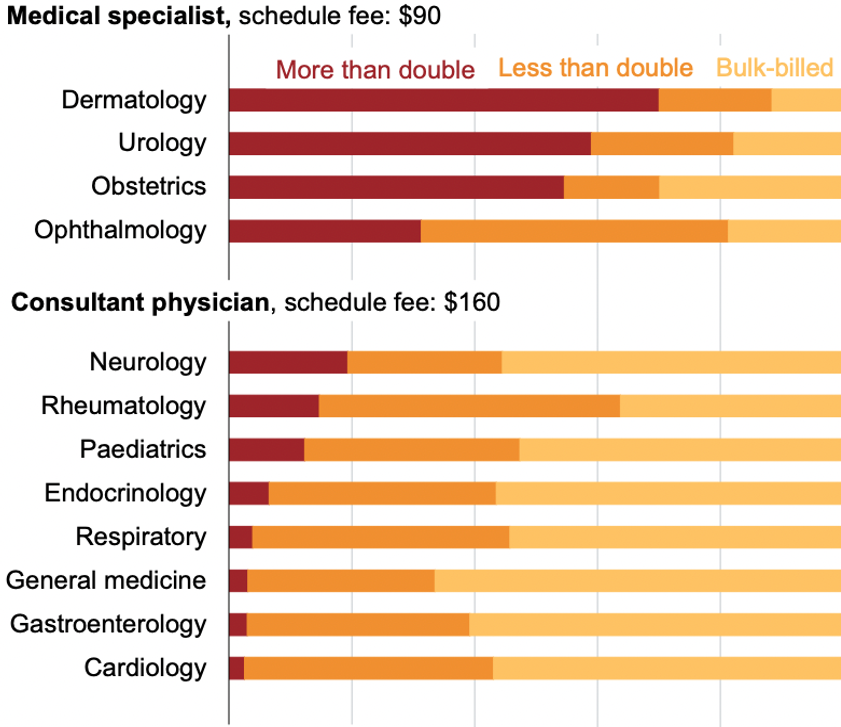Dermatologists have been criticised by a leading health economist as an example of how patients are being subject to ‘bill shock’ from specialists charging fees that are far higher than the Medicare schedule fee.
Citing his own experience of being asked to pay more than three times the scheduled fee for an initial dermatologist appointment, Dr Stephen Duckett of the Grattan Institute says the low rates of bulk billing and high out of pocket costs for specialities such as dermatology mean that many patients are missing out on care because of cost.

Source: Grattan Institute/ABS
In an article published by the Nine News Network, Dr Duckett says his academic expertise in the area of billing helped him avoid a huge out of pocket payment, but most Australians would not know how to navigate the system.
“I could not in conscience support price gouging at that level, and so used my referral to see a different dermatologist, who still charged way in excess of the Medicare schedule fee, but not three times,” he writes.
“I had another advantage over others, because I knew I wasn’t locked into seeing the specialist named on my referral. I also knew that only 10% of initial consultations with dermatologists are charged at more than three times the schedule fee, so the person I was initially planning to see was a high-priced outlier,” he adds.
Dr Duckett backs up his personal experience with figures from a new Grattan Institute report, showing that 70% of dermatologists charge more than double the $90 schedule fee and only 12% bulk billed. The median out of pocket payment for dermatologists was $154 in 2019.
These high costs for specialist appointments show that states need to expand the number of public hospital outpatients, so there are more zero-out-of-pocket options for patients, he says.
The report shows that currently waiting times (90th percentile) for an initial routine appointment are a ‘staggering’ 609 days in Queensland and 167 days in Victoria.
“More initial-appointment slots need to be made available across all specialties to bring down waits to a reasonable time – 30 days for urgent cases, 90 days for others,” he writes.
Governments also need to act to increase the number of specialists, he adds, noting that the number of dermatologists increased 17% in the last five years but the population over 70 increased by 25% during the same period.
“The federal government should work with the relevant colleges and states to expand training in the specialties in short supply. The proposed outpatient and bulk-billing clinic expansion can help here too,” he says.
Other way to improve access to specialists suggested by Dr Duckett include wider use of teleconsultations and co-location of specialist bulk billing clinics within general practices.
“Governments need to act, so that people who need healthcare can get it in a reasonable time frame, rather than face prolonged waits for an outpatient appointment or miss out on care altogether because of unaffordable out-of-pocket payments.”
“This should be firmly on the policy radar for the imminent federal election. Perhaps more public attention on the issue might prompt a few dermatologists to rethink how much they charge their patients, too,” he concludes.